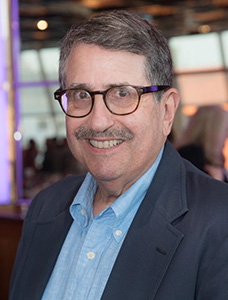At its core, the idea of “Recovery” expresses an amalgam of aspiration and hope. From practice, I learned that each patient has highly individual ideas of recovery. Examples: A man was pleased when a change from a traditional antipsychotic to clozapine, a more potent medication, meant a diminished frequency of psychiatric hospitalizations and improved function at home. A woman with a history of recurrent depression and opioid dependency felt a sense of personal triumph after successfully coming off methadone maintenance therapy even as she sustained a stable mood. For another, it was being able to live in supportive housing while being employed in a supportive work situation.

Barry B. Perlman, MD
Understanding what recovery means for those with serious and persistent mental illness (SPMI) is important because New York State, with a population of 19.5 million, is estimated to be home to 846 thousand adults with SPMI, about 5.4 % of its adults. In truth, SPMI touches all of us because it affects many families and communities as a consequence of homeless mentally ill living on our streets and significantly impacts the state budget both directly and through Medicaid. Those designated as having SPMI are persons largely diagnosed with Schizophrenia, Bipolar Disorder, refractory Major Depression, intractable Post-Traumatic Stress Disorder, and severe Obsessive Compulsive Disorder.
Perhaps the reason that recovery from SPMI is harder to understand than from the flu or a fracture is that nothing is visibly amiss. Their recovery is closer to someone who has incurred a stroke in that the extent to which they may regain various functions is not apparent at the time of the event. Across their lifetimes, those with SPMI usually have a bumpy up-and-down course with periods of advancement punctuated by relapses. The aim of treatment is to assist each individual to progress as far as possible in reaching their personal potential. As such, recovery remains an ongoing story without a predetermined destination.
Fortunately for New Yorkers, the NYS Office of Mental Health licenses a broad array of “recovery-oriented services” meant to assist persons with SPMI depending on their needs at differing times. These services are the tools of recovery; they include crisis services, inpatient hospital admission, partial hospitalization, continuing day programs, housing offering differing levels of support, and differing intensities of community-based care from clinics to intensive outreach programs. It is useful for families to familiarize themselves with the array of available services in order to better advocate with mental health professionals on behalf of their loved ones with SPMI.
A case synopsis of a patient I treated for decades provides a sense of which services are utilized during periods of acute illness and “recovery.” First seen as a college freshman because of depression, what followed was entirely unexpected. Early on, his condition severely deteriorated, requiring multiple psychiatric hospitalizations and extensive use of Electroconvulsive therapy after psychiatric medications failed to arrest his slide. Once his acute illness stabilized, he began to rebuild his life. He benefitted from the structure of a Continuing Day Treatment program while remaining in therapy. Over several years, he moved from his parent’s home through various levels of supportive housing before being able to live independently. All the while, he managed to graduate from college and attend graduate school. Spiritual counseling provided enrichment unavailable through psychotherapy. At my retirement, he was a married man and father, a successful social worker, and an adjunct professor of social work. It was an outcome neither of us could have foreseen and know to be rare. Appropriately, he continues in treatment.*
These case vignettes make clear the need for humility about the prognoses of those with SPMI seeking mental health care. Where the recovery journey may lead often can’t be foreseen at the beginning of treatment. To carry the journey as far as possible, we must keep working together with clinicians, patients, and families, employing available modalities. Along the way, a person with SPMI will benefit from differing combinations of services. Setbacks are discouraging for everyone, but all must persevere, striving to regain lost ground and progress while maintaining an atmosphere of hope.
* (For those interested in knowing more about this case, attached is a link to the essay which we co-authored. https://www.psychiatrictimes.com/view/here-comes-jimmy-hendrix-a-psychiatrist-and-patient-reconnect-and-recollect )
Dr. Perlman is a member of the Board of Mental Health News Education, the nonprofit organization that publishes Behavioral Health News. His memoir, Rearview: A Psychiatrist Reflects on Practice and Advocacy In a Time of Healthcare System Change, was published in 2021. He is a past President of the New York State Psychiatric Association and past Chair of the NYS Mental Health Services Council.




[…] Recovery: An Ongoing Process, Not a Destination […]